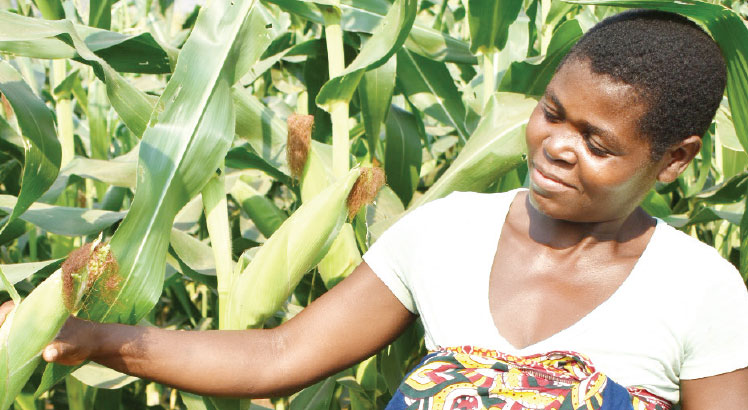Irrigation for cyclone survivors
For decades, Khongono villagers in Thyolo District tilled fertile alluvial soils in a flood-prone wetland along the eastern bank of the Shire River in the neighbouring Chikwawa District.
Davison Chisombe, 44, says rain-fed crops are tricky in the arid territory of Traditional Authority (T/A) Changata.
“During the growing season, we toil in vain due to erratic rainfall laced with flooding and prolonged dry spells,” says the maize farmer. “The food situation was worsened by environmental degradation, especially the loss of soil fertility.”
After decades of perennial hunger due to crop failure, the farmers have switched to irrigation which assures them of two or more harvests a year.
They are also conserving vegetation to lessen environmental degradation, which makes Malawi vulnerable to flooding, drought and dry spells fuelled by climate change.
The scheme has weaned over 260 farming households in T/A Changata from renting fields along the crocodile-infested Shire River from their neighbours in Gome Village, T/A Makhwira in Chikwawa.
Village head Khongono says it was costly to rent a field on the rich alluvial soils locally known as makungu.
“An acre costs K100 000. Add fertilisers and labour, not many could afford land on the stretch where some have lost lives and limbs to crocodiles,” he explains.

Changata Area Development Committee (ADC) pressed the Thyolo District Council to construct an irrigation scheme worth K31 million under the Governance to Enable Service Delivery (Gesd) project.
The World Bank funds the performance-based project through the National Local Government Finance Committee (NLGFC).
Like many others in the Southern Region, the scheme was devastated by Cyclone Freddy in March this year.
The longest-lasting cyclone also destroyed crops, water intake and pipes in the 160-hectare irrigation scheme.
“We lost the hope to beat hunger and poverty,” says Chisombe. “Tragedy struck as the contractor was completing final touches on the scheme and our matured maize was washed away.”
Cyclone Freddy destroyed more than 28 164 hectares of maize belonging to 509 244 households, according to the Department of Disaster Management Affairs (Dodma).
To alleviate farmers’ suffering, Thyolo District Council has temporarily fixed the scheme’s water intake and pipeline in time for irrigation farming.
The council hopes this will boost food security, incomes and disaster recovery in communities surrounding the wetland along the Limalimanja River at the foot of Mbiyamwana and Chafa Hills.
Ellen Chinyama, 35, lost her home, crops and belongings to the disaster.
She says the restoration of the scheme has helped her produce enough maize for her family of six.
“Restored irrigation farming has helped us to fight hunger and we have enough food to take us to the next harvest,” she says.
The irrigation farmers grow different crops, including maize, potatoes and beans for home consumption and for sale.
Eranive Bwanali, 65, sold the beans and invested the money in rebuilding her household and meeting immediate needs.
“I sell my beans at Mitondo Trading Centre at K1 600 per kilogramme. I make K10 000 daily. This helps me meet the basic needs of my grandchildren and replace things gone with the floods,” she explains.
Some farmers are planting maize for the second time while others have planted tomatoes and sweet potatoes to diversify their food baskets and income sources.
Chisombe is waving goodbye to costly farming on the banks of the Shire River where crocodiles prowl.
“It is safe and simple to produce food in our renewed irrigation scheme. We get three harvests a year,” he says, weeding his tomato field.
Khongono asks the government and its partners to support cyclone survivors with farm inputs as they struggle to bounce back from the loss and damage.
“As hardworking farmers, we can harvest more and feed ourselves with timely support to do climate-smart agriculture,” he explains.
Thyolo District Council principal irrigation officer Benson Semphani says irrigation is crucial to achieving food security.
He explains: “In the district, only few farmers own arable land. The majority do not harvest enough food.
“As such, irrigation is the way to go as even in hilly and rain-shadow areas such as Khongono people harvest at least twice a year.”
The council has invested K40 million in reconstructing and expanding the scheme this year, says director of finance Andrew Jaffari.
He says: “We want to expand the scheme to about 400 hectares as more people are embracing irrigation farming,” he says.





